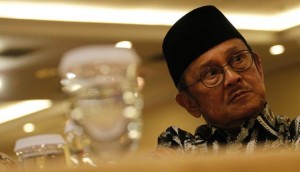 21 JUNE 1994 — a historic date for the Indonesian press. Indonesia government cancelled the publishing and printing license (SIUPP) of two weekly magazines and one tabloid: TEMPO, EDITOR and DeTIK.
21 JUNE 1994 — a historic date for the Indonesian press. Indonesia government cancelled the publishing and printing license (SIUPP) of two weekly magazines and one tabloid: TEMPO, EDITOR and DeTIK.
The three media outlets were added to the list of victims during the New Order government’s media crackdown. There were more than 25 media licensed revoked without the court process.
There was no clear reason behind the close down of Tempo at that time.
AFP reported in 21 June 1994, according to Director General of Press and Graphics Guidance Drs. Subrata, the reason behind the license cancellations:
that the three publication have been reminded on a number of occasions, and thus are considered not to have observed the governments warnings.
The other basis for the cancellation of the SIUPPs among others was because there existed a difference between the licence which was given and the contents of the publications.
However many people believed that the media coverage of the procurement of 39 ex-East Germany warships is the real reason behind the closure. Apparently the media coverage on this was considered as a threat to national stability.
The news was focused on the purchase price debated by the Minister of Research and Technology BJ Habibie, and Finance Minister Marie Muhammad; the price was reportedly between $12.7 million to $1.1 billion USD. A week earlier, Tempo magazine revealed that the price of warships has been marked-up by 62 fold.
Tempo magazine cover story of the June 7, 1994 edition made government officials angry. After less than a month, people in the vortex of power reported that Goenawan Mohammad, Chief Editor of Tempo, as the most dangerous man in Indonesia, as Janet Steel wrote in her book Wars Within. Tempo magazine, tabloid DeTik, and Editor magazine was then banned by Harmoko, Minister of Information.


Resistance occurs. A number of journalists held protests and rallies. In response to the ban, a number of journalists established the Alliance of Independent Journalists (Aliansi Jurnalis Independen).
Tempo also fought to sue the government in court. In the first and second level of court, Tempo won, but the Supreme Court beat Tempo – the legal considerations that are often written by legal experts is often listed as one of the “worst” in the history of the Supreme Court.

Banned, beaten, silenced. Not dampened, Tempo remains providing reports and writing stories for the reader. Tempo is back –this time using a website. They started to publish content in digital format in March 1996 under the name Tempo Interactive. They were one of the pioneers of Indonesian news sites.
Two years later, Soeharto stepped down. The New Order collapsed. The Ministry of Information was dissolved. The 4th pillar of democracy: press regained their freedom again. Publication of Tempo resumed following Suharto’s departure from office: the weekly magazine came back to the newsstand in October 6, 1998, with the cover story titled Rape: Stories and Facts; it was the story behind the riots in May 1998.
 Last February, Habibie – one of key players in the Warships drama– said something about the governmental interference of the media. This gentleman confirmed that the actual cause of the Tempo ban was related to their coverage on the East Germany warships fiasco. Habibie was indeed assigned by President Soeharto at that time to buy the ships.
Last February, Habibie – one of key players in the Warships drama– said something about the governmental interference of the media. This gentleman confirmed that the actual cause of the Tempo ban was related to their coverage on the East Germany warships fiasco. Habibie was indeed assigned by President Soeharto at that time to buy the ships.
According to Habibie, Parni Hadi –Editor in Chief of Republika newspaper as well as the Secretary General of the Indonesian Journalists Association– was the first person told him about the Tempo closure. “At that time, I was in Tokyo. Parni Hadi called me and told Tempo magazine was banned,” he said. Habibie admitted he was angry. On his return to Indonesia, he called Feisal Tanjung, the Commander of the Armed Forces.
“I’m angry. Arriving in Jakarta, I called Feisal Tanjung and asked why Tempo was banned. But, Tanjung replied briefly, saying the decision to close down Tempo already was approved by Pak Harto [President Soeharto],” Habibie said.





It’s too bad this can’t happen to reality tv here in America! :)